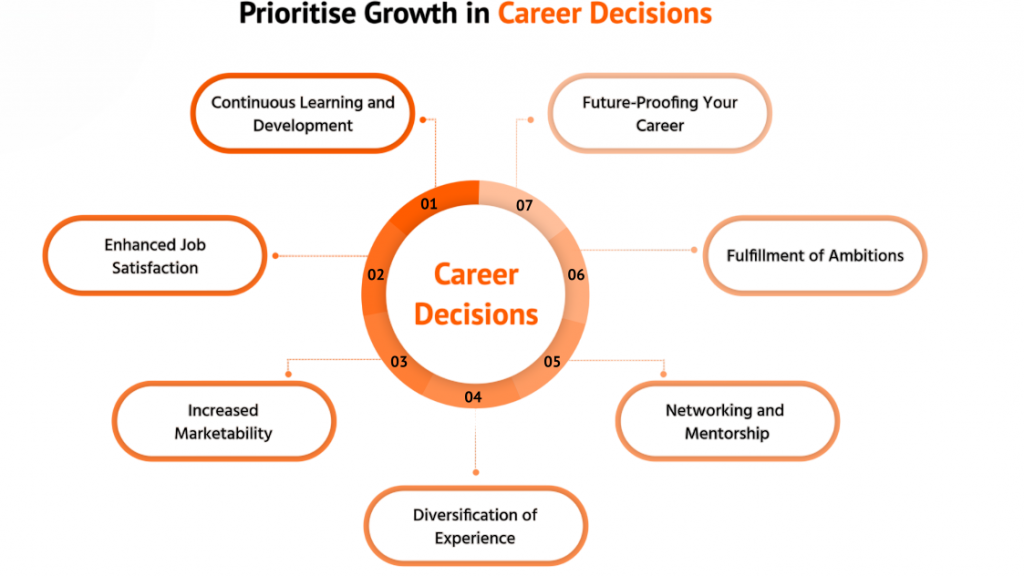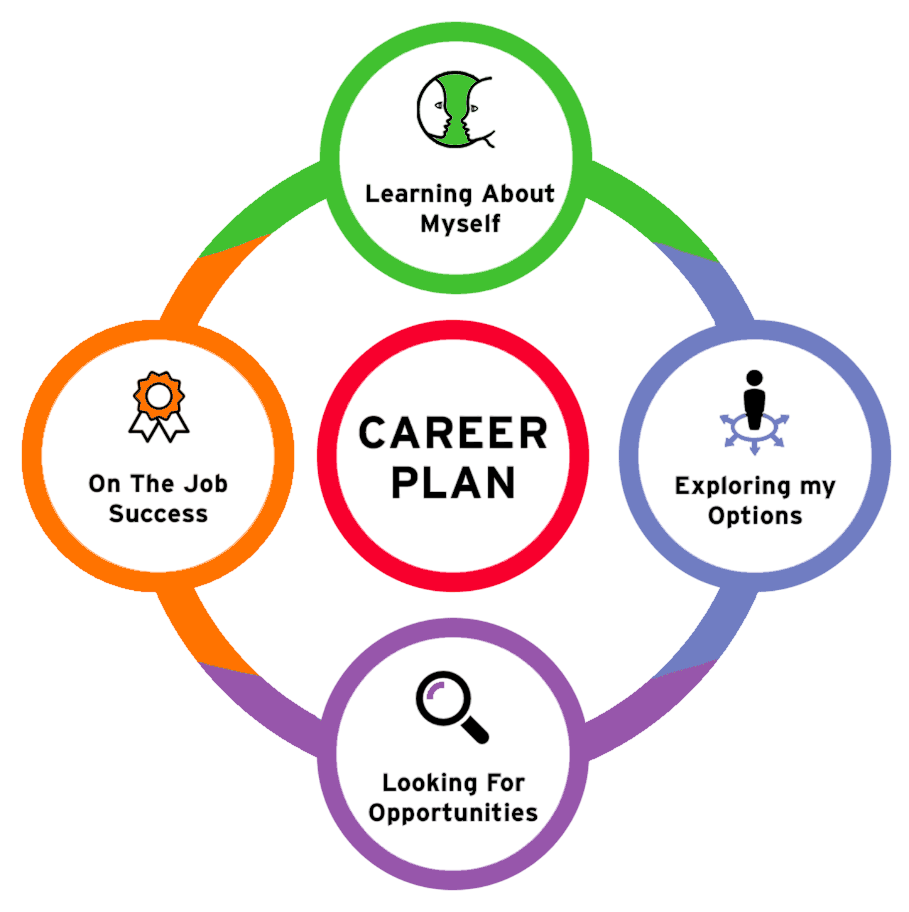
- Career Planning
- Importance of Career Planning
- Self-Assessment
- Exploring Career Options
- Setting Career Goals
- Education and Skill Development
- Building a Resume
- Networking Strategies
- Internships and Experience
- Career Growth Opportunities
- Career Change Guidance
- Conclusion
Career Planning
In today’s fast-paced world, career planning is essential for both personal and professional growth. Whether you’re just starting your career journey or looking to make a change, having a well-structured career plan can help you set clear goals, make informed decisions, and ultimately reach your professional aspirations. To align your career strategy with data-driven decision-making and analytical expertise, explore Business Analyst Training a program designed to equip professionals with the tools, frameworks, and business intelligence skills needed to accelerate growth and make impactful career moves. This article will guide you through the key aspects of career planning, including self-assessment, exploring career options, setting goals, developing relevant skills, building a resume, networking, gaining experience, and finding career growth opportunities.
Importance of Career Planning
Career planning is basically a necessary tool that leads one to both professional success and personal happiness. It equips individuals with a strategic plan on how to navigate their career journey. By having clear short- and long-term goals that are in harmony with one’s personal and professional values, a professional becomes capable of realizing his/her full potential and can also spot those opportunities that best fit his/her strengths and interests. An all-inclusive career plan serves as a continuous source of growth and development through focused education, wise networking, and deliberate skill-enhancing, thus making one capable of adjusting to the ever-changing job market. Besides that, the approach gives them the power to face challenges at work with confidence, change direction if need be, and keep a feeling of purpose and guidance. It is, in fact, through proper career planning that one’s career story changes from being a confusing wander to a purposeful, strategic step wise progress leading to self-fulfillment and long-term job satisfaction.
Interested in Obtaining Your Business Analyst Certificate? View The Business Analyst Training Offered By ACTE Right Now!
Self-Assessment
Before diving into the exploration of career options, it’s crucial to start with self-assessment. Self-assessment helps you evaluate your skills, strengths, weaknesses, values, and interests. It’s about understanding who you are and how your personal attributes align with the job market.
- Skills Inventory: Identify both hard skills (technical abilities) and soft skills (communication, leadership). Recognize areas where you excel and areas for improvement.
- Interests: Consider what excites you. Are you passionate about technology, healthcare, finance, arts, or customer service? Finding a career that aligns with your interests can lead to job satisfaction and motivation.
- Values: Reflect on your values and what is most important to you in a job. Do you value work-life balance, the opportunity for creativity, helping others, or job security? Your values should shape your career choices.
- Personality Assessment: Tools like the Myers-Briggs Type Indicator (MBTI) or the StrengthsFinder assessment can offer valuable insights into your personality type and potential career fits.
Self-assessment gives you a clearer picture of your potential career path and helps you identify areas for growth, ensuring a more targeted and effective job search.
To Earn Your Business Analyst Certification, Gain Insights From Leading Data Science Experts And Advance Your Career With ACTE’s Business Analyst Training Today!
Exploring Career Options
Once you have a better understanding of your skills, values, and interests, the next step is to explore potential career options. This process involves researching industries, roles, and career paths that align with your self-assessment.
- Research Different Industries: Take the time to explore various sectors, such as technology, healthcare, finance, education, or creative industries. Look into the job market trends, salary expectations, and job stability in each field.
- Job Descriptions: Review job listings and descriptions online to get a sense of the responsibilities, qualifications, and skills required for different positions. Pay attention to the companies that are hiring and any patterns in the type of roles they offer.
- Informational Interviews: Networking with professionals in the field of interest can offer valuable insights into what a particular career is like. Ask questions about the day-to-day responsibilities, career progression, and challenges faced in the field.
- Shadowing and Volunteering: If possible, shadow professionals in different roles or volunteer for organizations to gain hands-on experience and exposure to various careers.

By thoroughly exploring career options, you’ll be better prepared to make informed decisions about which path to pursue.
Setting Career Goals
Developing a career path that leads to success is all about first defining SMART goals that offer a clear plan and give you a sense of direction. Professionals, by setting both short-term and long-term goals, can tactfully steer their career evolution. Short-term objectives that can be done within a few months to a year might be getting a certain certificate, upgrading one’s skills, or getting a foothold in a target industry. These are supported by long-term dreams like becoming a manager, getting a leadership position, or maybe starting a business venture. More importantly, being able to track progress in a measurable way through the milestones set up provides for a constant evaluation and adjustment. To align these goals with strategic thinking and data-driven decision-making, explore Business Analyst Training a program designed to equip professionals with analytical frameworks, business intelligence tools, and practical skills that accelerate career growth and leadership readiness. Though it is necessary to have a well-organized plan, professionals should still be adaptable, understanding that careers can change because of different interests or taking up unexpected opportunities. Such a balanced approach to goal setting not only helps keep the individual’s focus and drive but also is a guarantee of being on the right track towards a professional journey that is truly satisfying.
Want to Pursue a Business Analyst Master’s Degree? Enroll For Business Analyst Master Program Training Course Today!
Education and Skill Development
Planning your career requires you to think about the whole picture of your education and skill development, as professional growth is a continuous journey. In this case, formal education plays an essential role since degrees and certificates are what mainly open the doors to specialized positions in such areas as engineering, law, or finance. Still, real career progression goes beyond academic qualifications only. Professionals have to support themselves through continuous learning by enrolling in online courses, acquiring certifications, and following a self-directed skill development path on platforms like Coursera or edX. Also, it is equally important to acquire soft skills, communication, teamwork, problem-solving, and leadership, which, together with technical skills, make the best performers stand out in a highly competitive labor market. In this way, people who develop a broad range of skills and keep a growth mindset can cleverly make themselves visible to new opportunities that will ensure career stability and the ability to be adaptable in a constantly changing professional environment.
Go Through These Business Analyst Interview Questions and Answers to Excel in Your Upcoming Interview.
Building a Resume
A well-crafted resume is essential for showcasing your skills, qualifications, and experience to potential employers. Your resume serves as a snapshot of your professional background and should highlight your achievements and strengths.
- Tailor Your Resume: Customize your resume for each job application to align with the specific role. Use keywords from the job description to make your resume stand out to hiring managers and Applicant Tracking Systems (ATS).
- Focus on Achievements: Instead of listing responsibilities, highlight your accomplishments and the impact you’ve made in previous roles. Quantify your achievements (e.g., “increased sales by 30%” or “managed a team of 5”).
- Professional Summary: Include a brief summary at the top of your resume to capture your key strengths and career goals. This provides employers with a quick overview of your qualifications.
- Keep It Concise: Keep your resume to one or two pages. Focus on the most relevant information and avoid including unnecessary details.
A strong resume increases your chances of standing out during the application process.
Networking Strategies
Networking is a vital component of career planning. Building relationships with professionals in your field can open doors to new opportunities and provide valuable career advice.
- Professional Associations: Join industry-related organizations and attend networking events or conferences. These gatherings allow you to connect with like-minded professionals and stay informed about industry trends.
- Social Media Platforms: Utilize LinkedIn to connect with professionals, join relevant groups, and engage with industry-specific content. LinkedIn is an excellent platform for building your professional network.
- Alumni Networks: Leverage your school or university’s alumni network to connect with individuals who can offer guidance or job leads in your field.
- Informational Interviews: Reach out to professionals in your network for informational interviews. These informal discussions can provide you with insights into their career paths, challenges, and advice for entering the industry.
Networking is one of the most effective ways to uncover hidden job opportunities and get insider advice on advancing your career.
Internships and Experience
Gaining career-related experience has become a must if one wants to succeed in the job market of today. Internships are a vital journey through which workers may get real knowledge and have an idea of the complicated nature of the office in their particular field. If there are no normal internships, future workers may choose different paths like freelancing, volunteering, or taking a part-time job that suits their career aspirations. Such openings allow one not only to accumulate a solid portfolio but also to grow a personal network and receive important industry knowledge. What is more, the guidance of a mentor may be sought for support and input, which will improve one’s professional development. Those who are willing to learn from various on-the-job training opportunities will be able to raise their value on the labor market to a great extent and thus they will be more attractive to potential employers and will also create a solid basis for a long-term career.
Career Growth Opportunities
Advancing one’s career is a purposeful and tactical voyage that requires an ongoing commitment and a proactive stance. Those professionals who desire to move up in a significant way have to implement a diversified strategy which involves continuous learning, acquiring new skills, and establishing relationships. Being up-to-date with the industry, getting further education, and being active in the relevant projects are some of the ways that individuals can make a place for themselves to succeed. The importance of feedback from managers, peers, and mentors cannot be underestimated as it is one of the main sources of insight into development opportunities both personal and professional. When professionals have gathered enough experience, they should carefully consider leadership positions and have a plan to make a move either laterally or vertically in another company or role that will offer them further growth. In essence, career development is not a passive undertaking but a conscious drive to broaden skills, confront one’s weaknesses, and constantly add value to the area of one’s expertise. If professionals keep a growth mindset and are still flexible, they will be in a position to skillfully plot their career paths and open doors to more complex opportunities for personal and professional fulfillment.
Career Change Guidance
Sometimes, despite your best efforts, a career change may become necessary. Whether due to job dissatisfaction, industry shifts, or personal interests, changing careers can be a daunting process. However, with proper planning, a career change can be a rewarding and fulfilling experience.
- Self-Assessment Revisited: If considering a career change, start by reassessing your skills, values, and interests. Identify what drew you to your new career choice.
- Transferable Skills: Look for skills and experience that are transferable to your new career. Highlight these in your resume and during interviews.
- Upskilling: Invest in learning new skills or obtaining certifications that are required for your new career.
- Networking: Leverage your network to learn about job openings and get advice from those in the field.

With careful planning and dedication, a successful career change is possible.
Conclusion
Career planning is an ongoing process that requires self-reflection, strategic goal-setting, and proactive efforts to gain education, experience, and networking opportunities. By regularly revisiting and refining your plan, you can continue to move forward in your career and achieve both professional success and personal fulfillment. To align your goals with data-driven decision-making and strategic insight, explore Business Analyst Training a program designed to equip professionals with analytical frameworks, business intelligence tools, and practical skills that accelerate career growth and long-term impact. Whether you’re starting fresh, aiming for growth, or considering a career change, the key is to remain focused, adaptable, and committed to your long-term goals.




